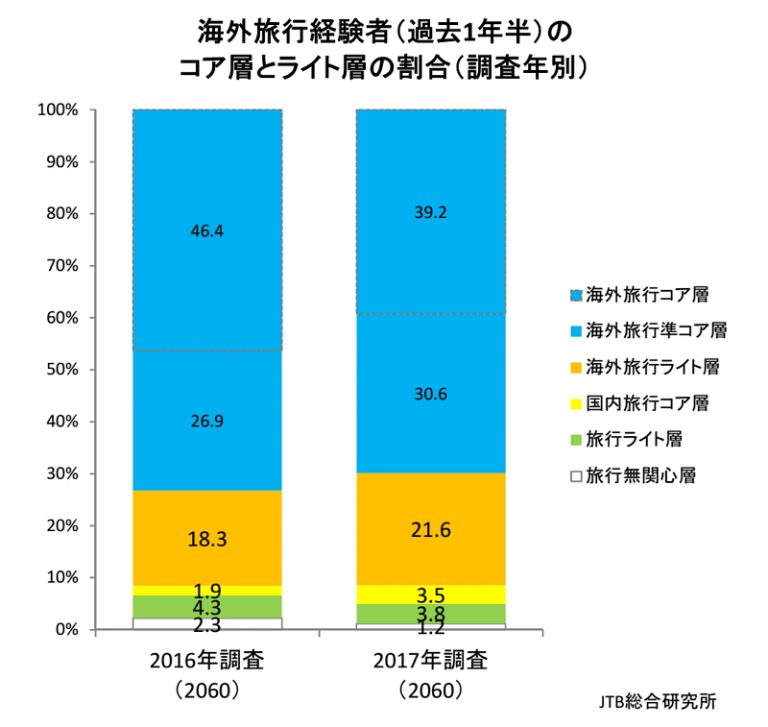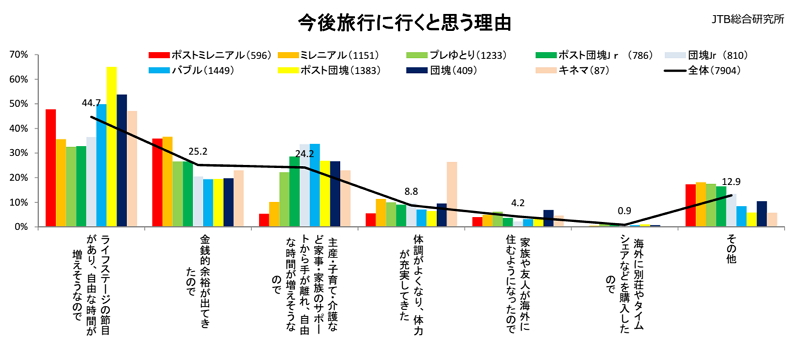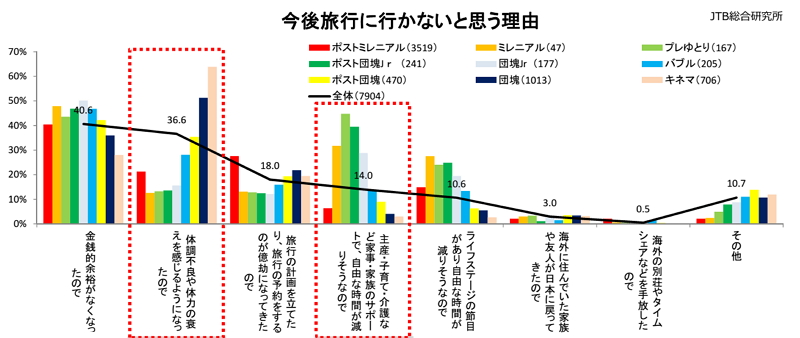
The recent JTB Tourism Research & Consulting’ survey on the overseas travel trend in Japan finds that the real number of Japanese overseas travelers in 2017 was 11.37 million (17.89 million in total), and the real departure rate was 9.1% (14.4% in total). Both of the results were record-high, exceeding the previous records of 11.24 million and the departure rate of 8.8% in 2012.
The ratio of ‘core overseas travelers’ (overseas travel experiences once a year or more) was down 7.2 points to 39.2% on a year on year basis. In reverse, the ratio of ‘quasi-core overseas travelers’ (once a few years) was up 3.7 points to 30.6%, and the ratio of ‘light overseas travelers’ (only when you have a motivation) up 3.3 points to 21.6%. The most motivated reason was ‘invitation from family or friends.’

Regarding willingness to travel overseas, high ratios found in ‘willing to increase overseas travel frequency (46.8%)’ and ‘willing to travel overseas in the future (19.8%)’ among post-Millennium generations from 18 to 22 years old.
On the contrary, among the baby boomer generation from 68 to 72 years old, high ratios were found in ‘willing to reduce overseas travel frequency (16.6%),’ ‘not willing to travel overseas any more (21.5%)’ and ‘never been overseas, and not willing to travel overseas in the future (11.9%).’ Among the older generation from 73 to 80 years old, 70.9% were negative about overseas travel.


The most motivated reason for traveling overseas among post-Millennium generations was ‘because of more free time on a life stage than before.’ A major negative reason for traveling overseas among the baby-boomer and older generations was ‘because of lower physical ability or worse health condition than before.’




